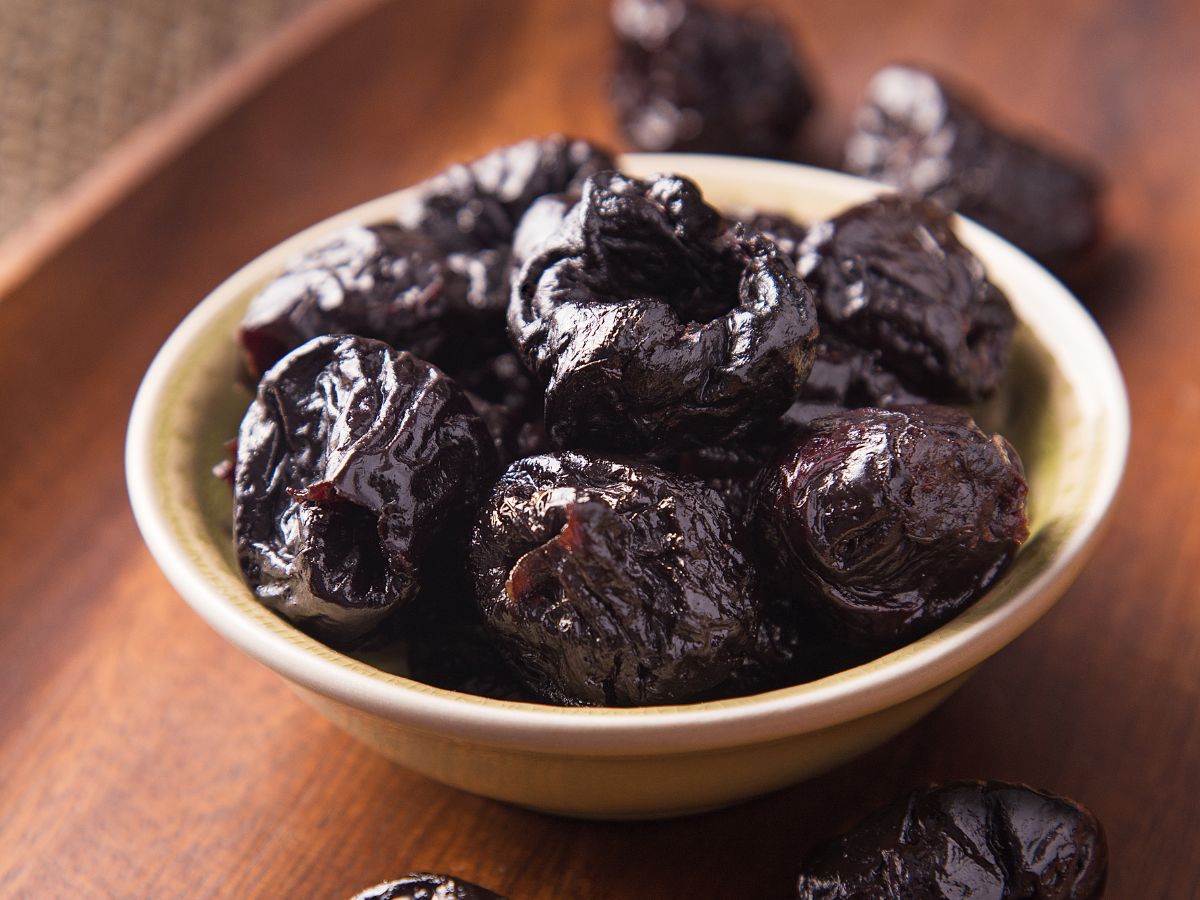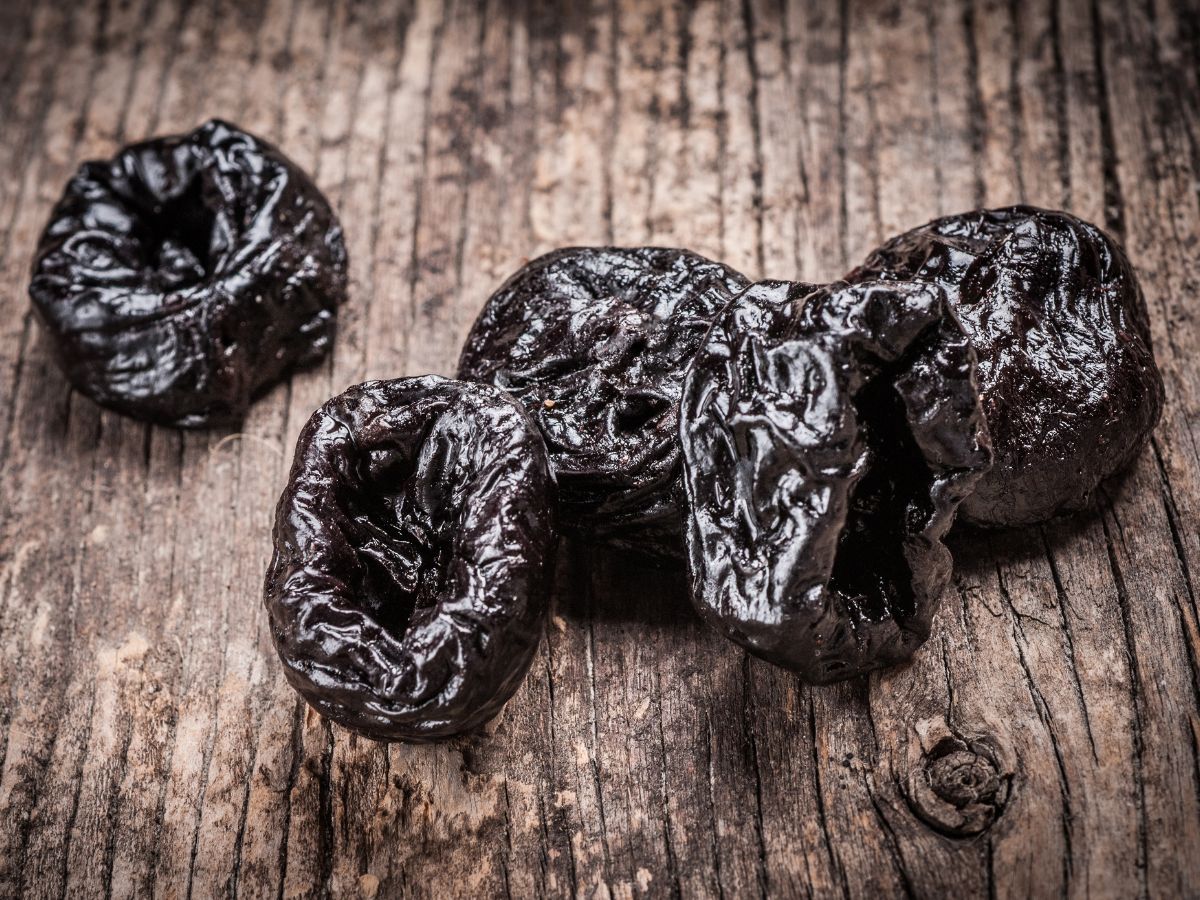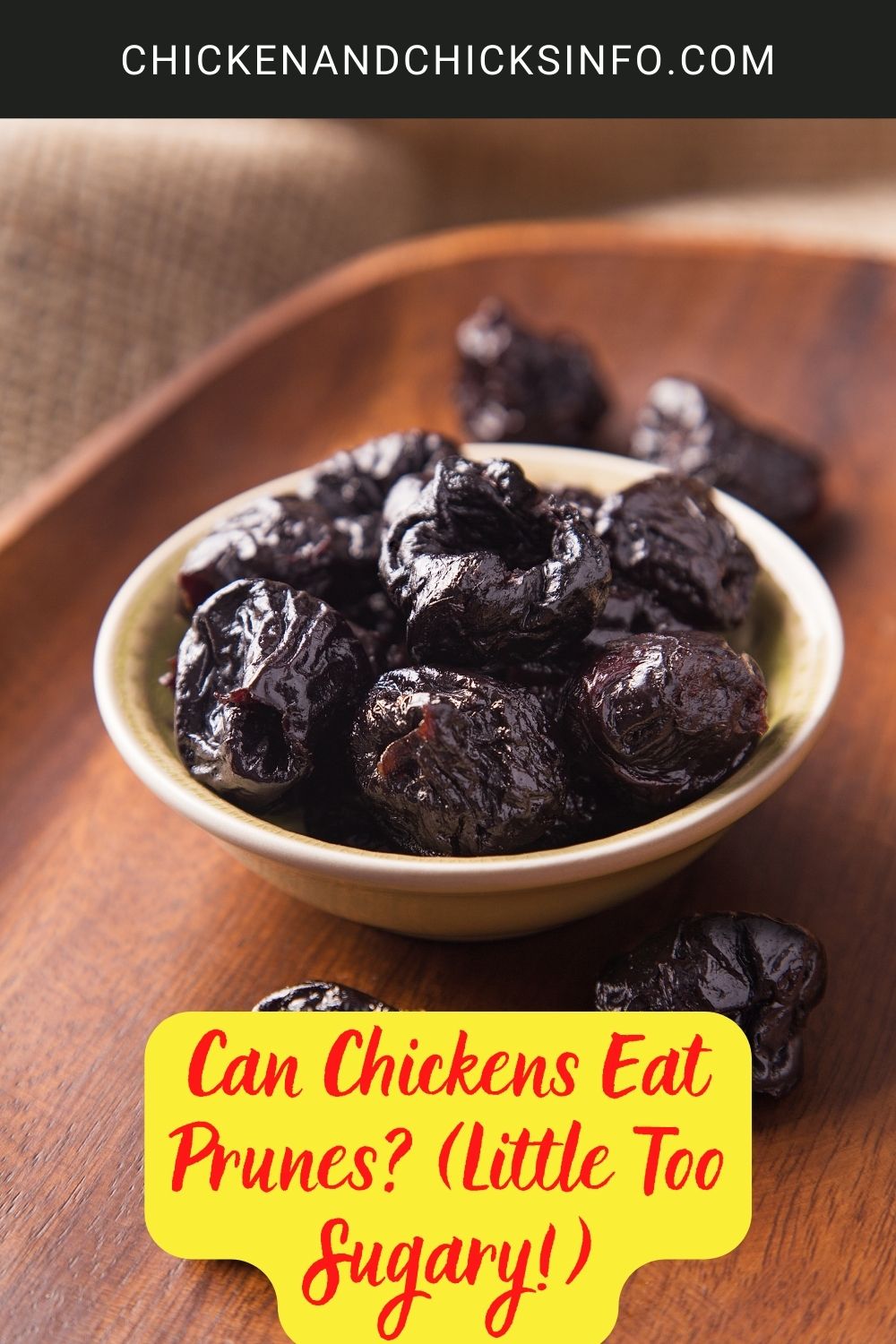
Prunes are interesting fruits. They’re basically just dried up plums, and it’s a bit of an old wives tale but they‘re good for helping you maintain a “regular” digestive system and avoid constipation.
Can chickens eat prunes? Chickens can eat prunes, yes. It’s not really advisable, however, as they are high in sugars and the seeds contain a small trace of cyanide. So, no harm in small amounts, but I wouldn’t feed them.
Jump to:
What's in Prunes?
This comes as a surprise to some, but prunes are dried plums. Plums come from the same family of trees like peaches, cherries, apricots, and some other fruits and have some similarities to those.
Plums and prunes are very different in appearance and taste. I think it’s fair to say that plums are a lot more popular. They are round, juicy fruits with a sweet to tart taste.
Once they’ve been dried out they become prunes. Prunes are tougher, a lot sweeter, and a bit sticky and much chewier.
They are a healthy fruit, although a little high in sugar content. Prunes are around 30% water, 60% carbohydrates, and 7% fiber.
They are also rich in vitamins, minerals, and antioxidants. The main issue when considering if you can share them with your chickens, and most pets, is that they contain around 38% sugar.
That’s far too much sugar to be throwing your chicken’s way. Just like humans, too much sugar is bad for chicks.
Just think how much less mass they have than us when feeding them foods. A little bit of prune isn’t going to do them any harm, but it’s just not worth it in my opinion.
Are Prunes Toxic to Chickens?

No, prunes are not toxic to chickens. Don’t panic if you’ve been feeding them to your chickens for a while. They aren’t the best food, but they aren’t poisonous either.
Something to be aware of, however, is that the seeds (also called pits, or stones) do contain a compound called amygdalin.
This is the compound that breaks down into hydrogen cyanide when ingested. This is also the same for other fruits from the same family as plums, such as apricots, cherries, peaches, and so on.
Sometimes a big deal is made about pips from fruits that contain these compounds when pets are concerned because they are a lot smaller than us so the effect is magnified.
But there is still very little to worry about. If your chickens have eaten a pip or two here and there, they’ll be fine. I’m not sure how much they’d have to eat to get sick, but it’s more than you’ll have given them.
This is a cool video, this little guy couldn't peck away fast enough at some sun-dried prunes:
Fruits That Are Safe for Chickens

There are plenty of other foods that are much better for your backyard flock. Just try any of the following:
Bananas - Chicken love bananas, and they’re packed with good nutrition. I wrote about why it’s good to give chickens bananas here.
Grapes - Grapes are another fruit a little high on the sugar content, but as an occasional treat, they’re perfectly fine. You can read more about chickens and grapes here.
Pumpkins - Pumpkins and pumpkin seeds are great for chickens and easy to feed too. Just slice the top off and let them dive in. Pumpkin pie is not good for chickens, too many spices, additives, flavorings, and so on.
Figs - I love figs, so I often have some to share with my flock - and they are more than happy to help me out. You can read more about feeding chickens figs here.
Oranges - A lot of chickens don’t like citrus fruits. While oranges, grapefruits, and so on are fine for them, there are no guarantees they’ll eat them.
Treating Chickens in Moderation
When feeding chickens treats, which is what just about anything other than their commercial feed is, it’s important to remember to do so sparingly.
The general rule of thumb is the 90/10 rule. This means, 90% of their diet should come from their commercial feed, and 10% can come from other foods.
This is because chickens have complex dietary needs. Especially if you want regular, large eggs, and healthy chickens.
Their feeds are specially formulated to help deliver all the nutrition they need. Upsetting this balance can cause some health issues, reduced egg production, and other problems in the long-term.
It’s fun feeding them table scraps, fruits, and vegetables though, I’ll be the first to admit that.
As long as you check any new foods you want to give your chickens are safe and good for them, feel free to add some variety to their diets.
Just don’t spoil them and give them more than 10% of “treat” foods and you’ll be fine (so will your flock).
In Summary - Can Chickens Eat Prunes?
Prunes, one of the stranger dried fruits in my opinion. While they’re not toxic or harmful to chickens as such, they are a little high in sugar.
With so many other fruits that are great for chickens, personally I’d pass on feeding them prunes and give them one of the more healthy options I listed above.
Resources
Prunes Nutrition Facts - Verywellfit.com





